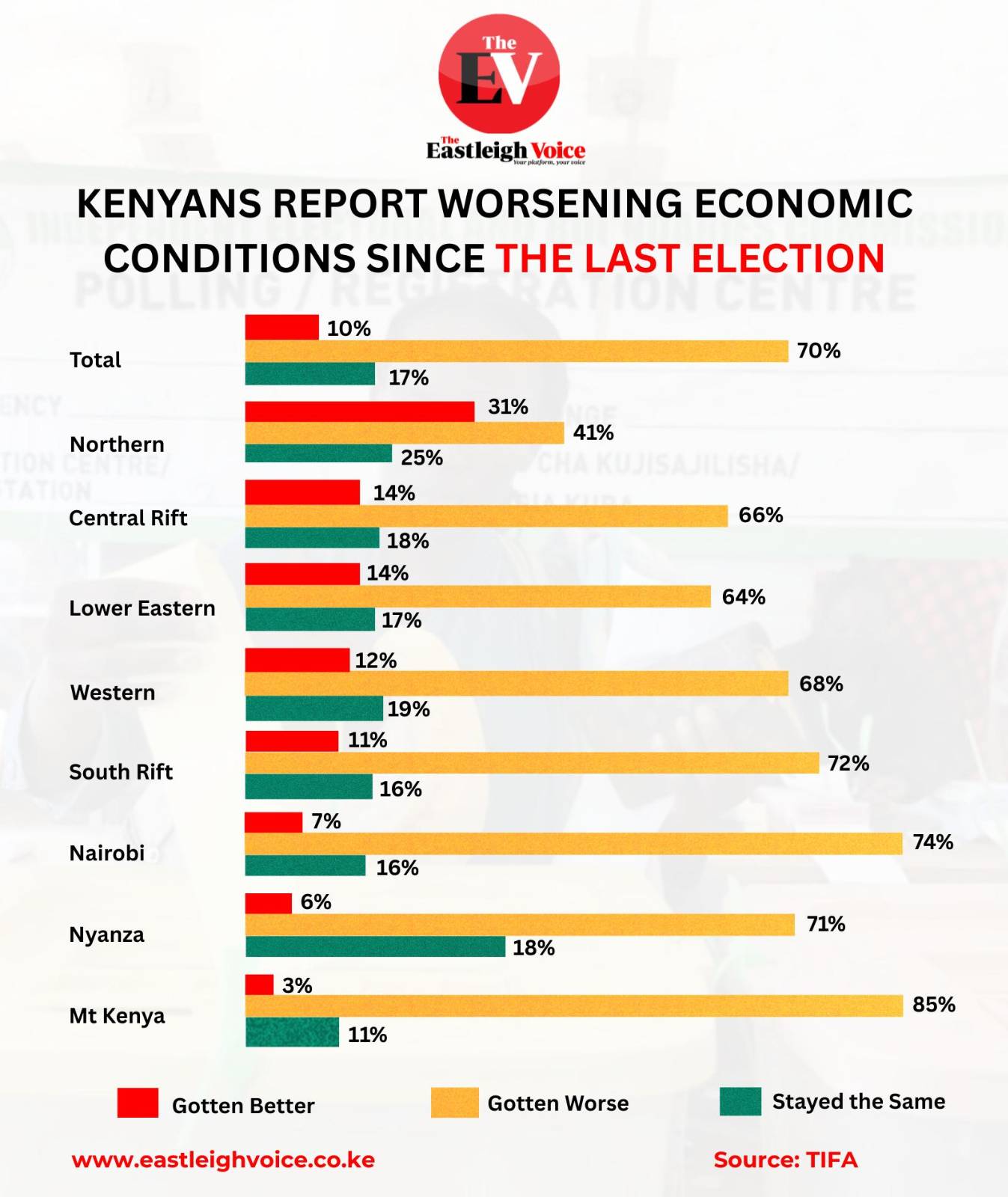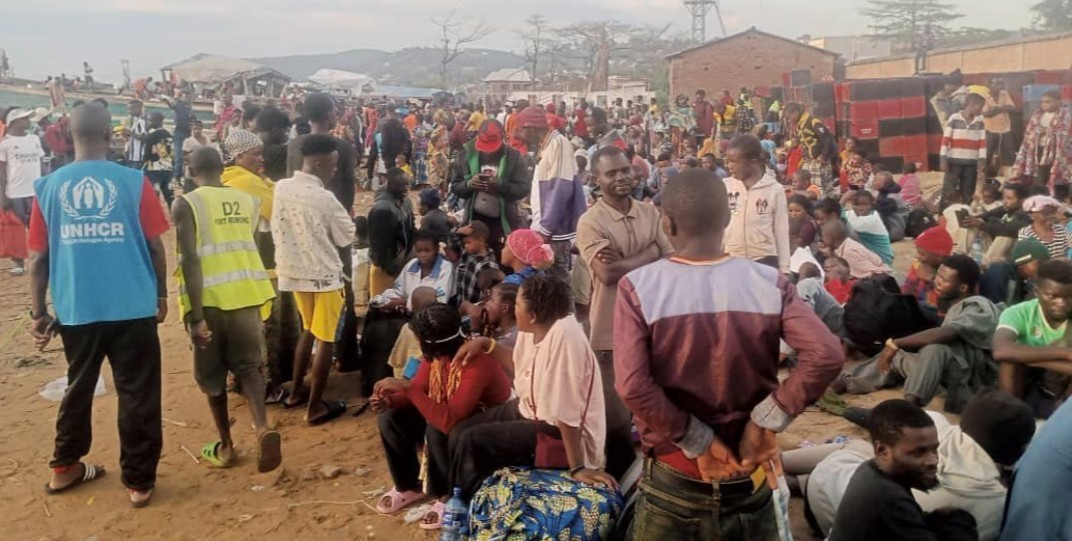Majority of Kenyans report worsening economic conditions since last election

Analysts suggest Northern Kenya’s relative stability may be linked to its limited integration into the wider national economy and the central role of livestock, which supports both household consumption and local trade.
The majority of people across all nine regions of Kenya say their personal or family economic situation has worsened since the last election, with the sharpest declines reported in Mt Kenya (85 per cent) and Nairobi (74 per cent).
At the other end of the scale, Northern Kenya records the lowest level of decline at 41 per cent. Strikingly, 31 per cent of residents there say their economic conditions have improved — more than double the next highest figure of 14 per cent in Central Rift and Lower Eastern. Mt Kenya reports the lowest improvement at just 3 per cent.
More To Read
- Fuel prices hold steady for December–January despite fluctuating global oil costs
- President Ruto pitches National Infrastructure Fund as engine for long‑term growth
- Kenya ranked Africa’s most competitive economy in International Institute for Management Development 2025 Index
- Ruto unveils Sh4 trillion development plan to propel Kenya to first-world status
- Construction sector seen as Kenya’s weakest job creator in 2025, CBK survey shows
- Kenya’s banking sector at a crossroads: Economist analyses new capital rules and licensing shift
Analysts suggest Northern Kenya’s relative stability may be linked to its limited integration into the wider national economy and the central role of livestock, which supports both household consumption and local trade.
Top Stories Today












































